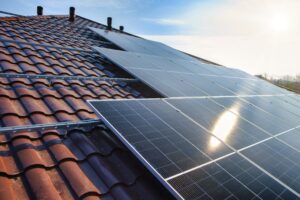Boilers are funny things really. Most of us have one, somewhere, but very few of us know much about them and how they work. If you’re replacing your boiler or renovating, it’s time you learnt a little more about them, so that you can get the type of boiler you need.
If you’re seeing this and wondering, what does this matter? Aren’t gas boilers getting phased out? Let us put your mind at ease. We still have 14 years until new gas boilers will stop production in the UK and you’ll likely need to replace your boiler in that time. However, if you are interested in a cleaner way to heat your home, we also supply Air Source Heat Pumps. You can read all about heat pumps in one of our other blogs.
For now though, we’re talking gas boilers! This blog will talk you through the main types of gas boiler; combination (or combi), system, and conventional. Which one you choose depends on a number of factors so have a think about the following questions…
- How big is your house and how many people live in it?
- How many bathrooms and radiators do you have?
- What type of boiler do you currently have?
- What is the mains water pressure like in your area?
Bear those answers in mind as you read through the rest of our guide!
What is a Conventional Boiler?
Also known as ‘regular boilers’, conventional boilers have been around for a long time. If you live in an old house, you’ll likely have one of these.
The defining feature of a conventional boiler is their hot water cylinder which is a separate unit to the boiler (usually found in an airing cupboard). These are usually open vented systems with another small tank in the loft. Or, you can get unvented systems which will save you some loft space as it feeds your radiators directly from the mains by means of a filling loop.
One major benefit of a conventional boiler is that you can store lots of hot water, ready to be used by multiple baths, showers, and other appliances. This is useful if you live in a low-pressure area because you won’t have to depend on the mains pressure anymore. Another benefit to storing water is that, if you have an immersion heater installed, you’ll still have hot water if the boiler breaks.
On the other hand, when the hot water runs out, the hot water cylinder will need refilling and reheating. That means you’ll be without hot water for a short while. This method is also not very efficient and could mean you waste money if you don’t end up using the hot water.
Why you might want a conventional boiler: If you’ve got a big house with lots of bathrooms, radiators, and people who’ll be using hot water. Also, if the mains water pressure in your area is poor.
Why you might not want a conventional boiler: If space is tight and you only have one bathroom with a few radiators. If you don’t already have the necessary pipework, they require a lot of work to install.
What is a Combi Boiler?
So called because they combine both hot water and central heating elements in one, combi boilers are the most popular choice in the UK! This largely because they are more compact than a conventional boiler.
A combi boiler gives on-demand hot water and draws water directly from the mains. So, there’s no need for extra storage tanks, and you’ll never have to wait for the hot water tank to refill. The fact that it’s smaller makes a combi boiler easier to install and maintain. Plus, heating water only when necessary is a much more efficient and cost-effective method.
On the downside, combi boilers are not well designed to support more than one outlet at a time. If you need lots of hot water at once, the boiler won’t have time to properly heat it. It’s also worth noting that swapping a conventional boiler for a combi will require a lot of work to refit your piping and radiators to suit.
Why you might want a combi boiler: If you live in a flat or small house where space is limited, and you don’t need lots of hot water at a time. Also, if you want to have more control over your costs.
Why you might not want a combi boiler: If the mains water pressure in your area is poor. Or, if you have a large house with lots of people, radiators, and bathrooms.
What is a System Boiler?
Finally, we have system boilers which are actually very similar to conventional boilers. They come with a separate hot water cylinder for your taps, but your radiators are fed directly from the mains. The main difference is that system boilers are slightly more integrated, saving you a little more space and making them easier and cheaper to install.
Your engineer will be able to go into more detail if you’re interested when assessing your home. In general though, system boilers are often chosen in modern homes simply because they’re easier to install than conventional boilers.
With a system boiler, you get the benefit of a stored hot water cylinder, which is better for delivering lots of hot water at once. Just remember that it is not as cost-effective as hot water on-demand and you’ll still have moments without hot water while the cylinder refills and reheats.
Why you might want a system boiler: If you live in a modern, bigger house with space for a hot water cylinder, and lots of uses for hot water.
Why you might not want a system boiler: If space is tight and you want to keep costs low with a more cost-efficient system. Or, if you have a conventional boiler already and don’t want the expense/effort of refitting all your pipework and radiators from a conventional system.
Get a quote for your new boiler today! Or, if you’re still unsure about which type of boiler is best for you, call one of our experts on 0333 003 0703. We can talk through your specific needs and find the best option for you.
We can also help with funding. Check to see if you qualify for the ECO scheme and get yourself a subsidised boiler.



